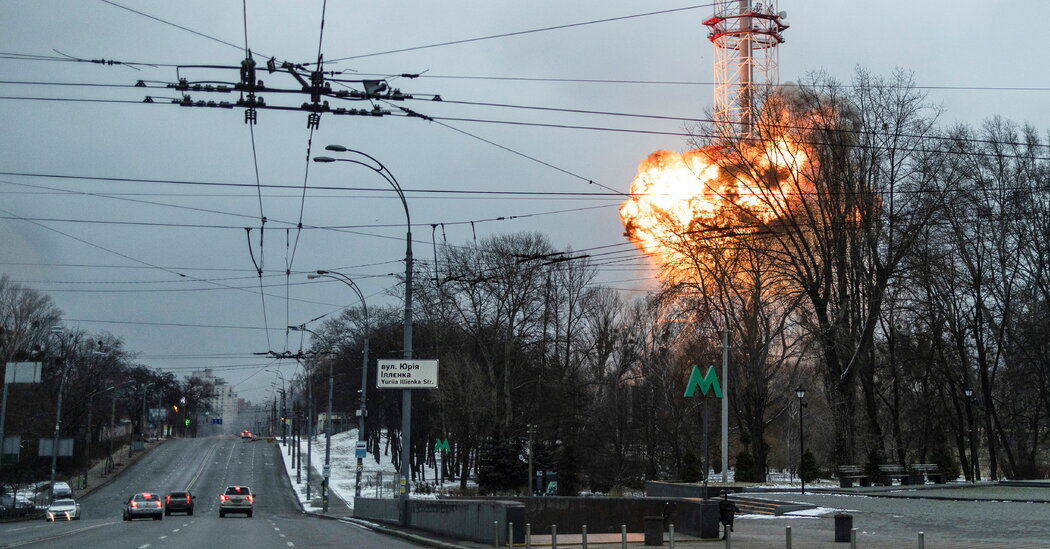As Russia tries to cut off the flow of information in Ukraine by attacking its communications infrastructure, the British news channel BBC is rethinking a broadcasting tactic popularized during World War II: shortwave radio.
The BBC said this week it would use long-distance radio frequencies accessible on portable radios to broadcast World Service news in English four hours a day in Kiev, the Ukrainian capital, and parts of Russia. .
“It is often said that the truth is the first casualty of war,” the BBC’s director-general Tim Davie said in a statement. “In a conflict where disinformation and propaganda are rife, there is a clear need for factual and independent news that people can trust.”
On Tuesday, Russian projectiles hit the main radio and television tower in Kiev. Oleksii Reznikov, Ukrainian Defense Minister, wrote on Twitter that Russia’s goal was “to break the resistance of the Ukrainian people and army”, starting with “a disconnection” and “the dissemination of massive fake messages that the Ukrainian national leadership has decided to give up.”
Shortwave radio has been a tool of choice for decades to reach listeners in conflict zones, being used to deliver crackling messages to soldiers in the Persian Gulf War, to transmit codes to spies in North Korea, and to by pontifying the Iron Curtain. But more modern forms of radio and the Internet eventually fell out of favor with shortwave; the BBC stopped shortwave broadcasting in Europe 14 years ago.
In the last week of February, the viewership of the BBC’s Ukrainian language site more than doubled from a year earlier to 3.9 million visitors, the broadcaster said on Wednesday. The BBC also provides news in the country through its website, YouTube, Facebook, Twitter, Telegram, Viber and Espreso TV.
Millions of Russians are also turning to the BBC, the broadcaster said. Audiences for the BBC’s Russian-language news website hit a record 10.7 million last week, more than tripling the weekly average to date in 2022, the company said. Visitors to the BBC’s English-language website from Russia rose 252 percent to 423,000.
Within the country, BBC also posts updates on Telegram, Instagram, Facebook and YouTube. Other western news channels have also experienced an increase in viewership. Russian and Ukrainian audiences’ visits to The Guardian’s digital platforms were up 180 percent from January.
The BBC’s coverage has sparked complaints from Russian officials. Maria Zakharova, the spokeswoman for the Russian Ministry of Foreign Affairs, said during a briefing broadcast by RT, the Kremlin-backed Russian media outlet, that Russia had been the victim of “unprecedented information terrorism” that was “dedicated to discrediting Russian actions” and “creating hysteria around Ukrainian events.”
The BBC “plays a determined role in undermining Russian stability and security,” Ms Zakharova said, without providing evidence.
Early Friday, BBC’s Russian Service reported issues access his site in Russia.

